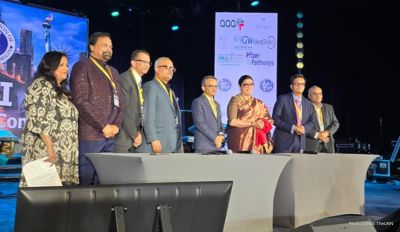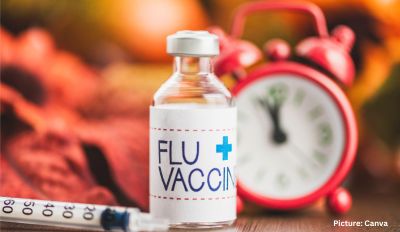A recent study has shed light on a concerning trend of declining health in India. According to the report, released by Apollo Hospitals, India is now labeled as “the cancer capital of the world” due to a surge in cancer and other non-communicable diseases nationwide.
The report aims to draw attention to the growing health crisis that requires urgent action from all Indians. Despite recording over a million new cases annually, India’s cancer rate still falls below countries like Denmark, Ireland, and Belgium, and is lower than the United States, with 100 cases per 100,000 people compared to 300 in the U.S.
However, this might soon change due to what experts describe as an “epidemiological transition.” The study reveals that one in three Indians is pre-diabetic, two in three are pre-hypertensive, and one in ten suffers from depression. Chronic illnesses such as cancer, diabetes, hypertension, cardiovascular diseases, and mental health disorders have reached alarming levels nationwide.
The number of cancer cases is projected to exceed global averages, increasing from 1.39 million in 2020 to 1.57 million by 2025. Breast cancer, cervix cancer, and ovarian cancer are the most common among women, while lung cancer, mouth cancer, and prostate cancer prevail among men. Surprisingly, more women in India are diagnosed with cancer compared to men, deviating from the global trend.
Certain cancers are also affecting younger individuals earlier than in other countries. For instance, the median age for lung cancer in India is 59, compared to 70 in the U.S., 68 in China, and 75 in the U.K.
The high incidence of cancer can be attributed to various environmental, socioeconomic, lifestyle, and dietary factors. Nearly 40% of cancer cases in India are linked to widespread tobacco use, significantly increasing the risk of lung, oral, and throat cancers. Poor dietary habits and lack of physical activity contribute to 10% of cases.
The report also warns of an impending healthcare crisis due to escalating obesity rates (from 9% in 2016 to 20% in 2023) and hypertension (from 9% in 2016 to 13% in 2023). Additionally, pre-diabetes, prehypertension, and mental health disorders are manifesting at younger ages, while obstructive sleep apnea poses a significant risk among Indians.
Dr. Preetha Reddy, Vice Chairperson of Apollo Hospitals Group, emphasizes the crucial role of health in the nation’s development. She calls for unified efforts from the healthcare ecosystem and the nation to combat non-communicable diseases effectively.
Experts stress the importance of regular health screenings, including blood pressure and body mass index monitoring, to reduce the risk of cardiac-related ailments. Although India has screening programs for oral, breast, and cervical cancer, national data indicates screening rates of less than 1%. However, there’s a positive trend towards more comprehensive health checks among the population.
Despite this, experts emphasize the need to expand health checks across India by investing in health infrastructure, promoting preventive healthcare measures, and addressing health disparities. Prioritizing these aspects will be crucial in safeguarding the health and well-being of the nation.











